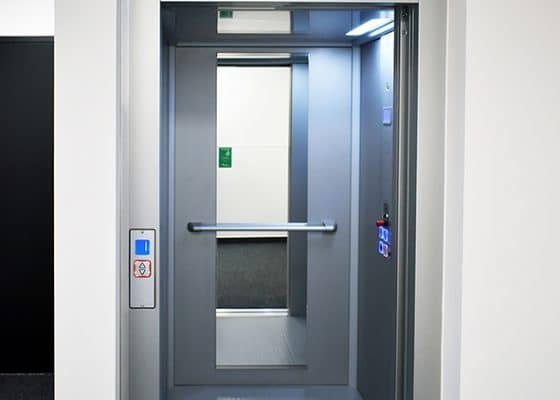
Having Abdominal Pain? What Could Be The Reason?
Have you ever wondered why you get those crampy, dull, or sharp stomach aches? It turns out that it might not just be your stomach causing the pain. Your abdomen houses other organs that could be the culprit behind that ache.
The intensity can vary, whether a mild, dull ache or a sharp, stabbing sensation. And it can happen anywhere between your belly button and pelvis. Sometimes you can brush it off, but other times it can completely stop you in your tracks. And guess what? You’re not alone -a study published in Clinical Pathways in Emergency Medicine found that abdominal pain accounts for 10% to 12% of emergency room visits worldwide.
So let’s dive deeper into the potential causes of your discomfort and emphasize the importance of seeking emergency care when needed.
Table of Contents
ToggleAnatomy of the Abdomen
The abdomen, often called the belly, is the region between the chest and pelvis. It comprises various organs such as the stomach, liver, intestines, gallbladder, spleen, kidneys, diaphragm, and pancreas. The front of the abdomen consists of a layer of tissue called fascia, while the back comprises the spine and back muscles. Blood vessels, including the inferior vena cava, aorta, and branches, are connected to the abdomen.
What Causes Abdominal Pain?
Abdominal pain can have some not-so-serious causes like gas, indigestion, or constipation. While these things usually don’t need immediate medical help, it can be tricky to figure out precisely what’s causing your discomfort. Plus, your pain level sometimes matches how serious the problem is. For instance, a typical stomach bug can be painful, but something more serious, like colon cancer, might not cause much pain.
But here are some common causes of Abdominal Pain:
- Acid Reflux: When stomach contents flow back into the esophagus, causing heartburn and abdominal pain. Known as GERD, it can lead to complications like difficulty swallowing.
- Appendicitis: Inflammation of the appendix in the lower right abdomen causes severe abdominal pain.
- Cholecystitis: Gallbladder inflammation, resulting in severe stomach pain on the right side.
- Constipation: Irregular bowel movements and hard stools can cause abdominal pain.
- Crohn’s Disease: The colon and small intestine’s inflammation leads to abdominal pain and altered bowel habits.
- Diarrhea: Lower abdominal pain caused by infection, medication reaction, or food poisoning.
- Flatulence: Excessive gas can cause bloating and mild stomach pain.
- Gallstones: Due to high cholesterol levels, stones are formed in the gallbladder which results in abdominal pain.
- Gastritis: Inflammation of the stomach, often accompanied by nausea, caused by factors such as alcohol, smoking, and spicy food.
- Gastroenteritis: Inflammation of the stomach and intestines.
These common causes of abdominal pain can vary in severity, and one should seek a checkup for proper diagnosis and treatment.
Types of Abdominal Pain
Chronic Abdominal Pain
Chronic abdominal pain can result from various diseases affecting the digestive system. The four most frequent conditions are
- Gastroesophageal Reflux Disease (GERD),
- Irritable Bowel Syndrome (IBS) or Spastic Colon,
- Crohn’s Disease, and
- Lactose Intolerance.
These conditions can cause abdominal discomfort, cramping, bowel movement changes, and an inability to digest lactose.
Severe Abdominal Pain
Severe abdominal pain can stem from various sources, such as
- organ rupture or near-rupture (e.g., appendicitis),
- gallbladder stone formation (known as gallstones),
- kidney stone manifestation, or a kidney infection.
The specific location of the pain within the abdomen can serve as an indicator of its underlying cause.
Diffuse Abdominal Pain
If you’re experiencing diffuse abdominal pain (i.e., not localized to a specific spot), it could be a sign of various conditions, such as:
- Appendicitis: an inflammation of the appendix, which may require surgical removal if severe or persistent
- Crohn’s disease: an inflammatory bowel disease (IBD) that affects the gastrointestinal tract and can cause chronic symptoms, such as diarrhea, pain, and fatigue
- Traumatic injury: such as a blow to the belly or a strain of the muscles or ligaments, which may resolve with rest or medication
- Irritable bowel syndrome (IBS): a common functional disorder of the gut that can cause recurrent bloating, cramps, and altered bowel habits but usually doesn’t cause inflammation or damage
- Urinary tract infection (UTI): an infection of the bladder, urethra, or kidneys that can lead to pain, burning, and frequent urination but doesn’t affect the abdominal organs directly
- The flu: a viral infection that can cause fever, cough, fatigue, and body aches but typically doesn’t cause abdominal discomfort unless complications arise.
Suppose you have persistent or severe abdominal pain, especially with other symptoms like fever, vomiting, or blood in your stool or urine. In that case, you should seek medical attention promptly, as it could indicate a severe or life-threatening condition.
Pain In The Lower Abdomen
If you’re experiencing pain in your lower abdomen, it could be a sign of severe medical conditions such as Appendicitis, Intestinal Obstruction, or Ectopic Pregnancy. Consulting a medical professional is recommended for a proper diagnosis and treatment.
Pain In The Reproductive Organs
From severe menstrual cramps, ovarian cysts, miscarriage, fibroids, endometriosis, and pelvic inflammatory disease to ectopic pregnancy, we’ve got you covered. Learn more about these conditions and seek proper medical attention for relief.
Seek Medical Help for Abdominal Pain
You can manage abdominal pain at home, but certain situations require medical attention. Seek help if you experience:
- Severe and persistent pain
- Sudden and intense pain
- Pain after trauma or injury
- Recurrent pain that affects daily activities
- Pain combined with high fever, vomiting, blood in stool or urine
Be sure to consult a healthcare professional for an accurate diagnosis and treatment.
The Bottom Line
Don’t let abdominal pain get you down! Learn what causes it and when to see a doctor so you can manage it effectively. By paying attention to the type of pain and any other symptoms you experience, you can work with healthcare professionals to find the root cause and develop a treatment plan. Trust us; it’s worth it.


